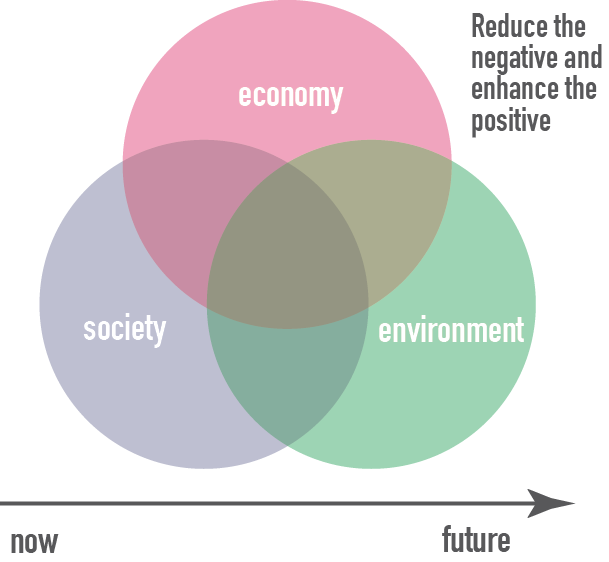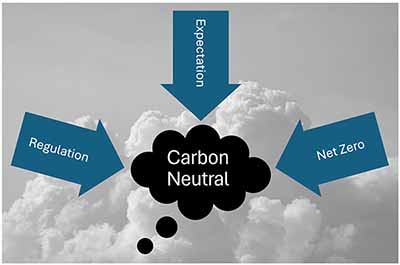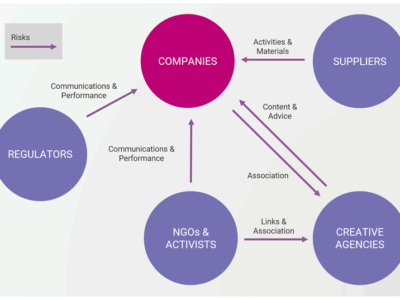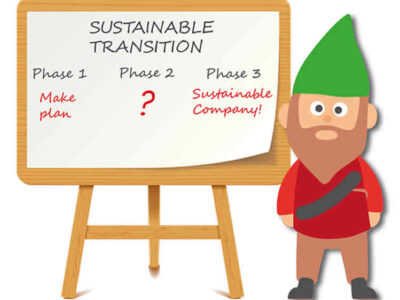What is a sustainability issue?
Well, almost anything.
But sustainability is essentially a human concept. It wasn’t an issue before humans started impacting the planet and each other on a large scale.
Because sustainability is so broad almost anything can be considered a sustainability issue.
Sustainability is fundamentally about human interaction, impact on the environment and on each other, environmental and social issues.
Economics is traditionally added as a third pillar of sustainability – but others see it simply as a form of social issue.

What are the problems?
For millennia we have used the world’s natural resources to sustain us but it’s only logical that these resources are finite. Scarcity can lead to price rises, hardship and conflict. It also leads to increased efforts to find new resources, often with further or different consequences.
Our increasing and inefficient use of resources has knock-on effects including climate change, loss of biodiversity, pollution, poor health and poverty. These issues are interlinked and in turn often exacerbate each other.
The scale of the environmental/social challenge is enormous. We need to fundamentally change the ways things are done to achieve sustainable development. This will need to go beyond resource efficiency to changing the way things are used and made, including cradle-to-cradle processes, dematerialisation and moving from products to services. Sometimes people need help and that’s where sustainability consulting services like ours come in.
These are global issues – what can we do as a single company?
Single organisations rarely achieve global change. Responding to these issues requires focus, first upon what you control (your products, services and operations) and then what you depend upon (resources, energy, partners and suppliers). In addition, it also involves what you influence through relationships, leadership and innovation.
The changes you may be able to make might be incremental (how you do things) or more major (the things you do).
Examples might include your approach to business, specific projects or products, behavioural change programmes, changes to your value chain, alterations to performance management or governance. Learn more about Sustainable Transition >>
Why should we?
Contributing to a more sustainable future will bring a range of benefits. In the short-term you will benefit from enhancing your sustainability / CSR credentials, meeting and moving ahead of pressures from regulators and stakeholders and finding efficiency-based cost savings too.
Long term benefits include enhanced stakeholder and investor support, lower risks in your value chain, enhanced brand and reputation, better employee relations and knowing you are doing the right thing for our children and grandchildren.
Which sustainability issues matter for businesses?
The sustainability issues that are important for businesses are no different to those that are important for other organisations, governments or individual citizens. However, their responsibility and what they can and need to take action on can often be different.
The pressure for sustainable business is gathering pace.
There is a growing global recognition (in many places anyway) that responding to the accelerating climate crisis, species loss, plastic pollution, inequality and delivering the UN Sustainable Development Goals is a job not just for policy makers and the public but key to the long term health and survival of business.
Periodically we review and write about what matters and how businesses and other organisations can understand, navigate and take action on issues.
DISCOVER MORE | Sustainability Issues
Carbon Neutral Communications
Despite considerable regulatory focus on carbon neutral claims, companies are still getting their communications wrong, so what is happening?
While many large companies now appear wary of making claims about carbon neutrality, we can still see considerable focus on these in the SME space, some …
Reputation risk and sustainability – who do you work with?
Reputation is widely regarded as one the most valuable assets of an organisation. Sustainability can also be an important contributor to both reputation and several dimensions of business value.
In this article we explore different dimensions of reputational risk, how it might be affected and how …
Sustainable Aviation?
On the 28 November 2023, the first long-haul passenger plane powered with ‘sustainable’ air fuel took off. SAF offers an ostensibly attractive path for decarbonisation for the airline industry – the lifecycle greenhouse emissions can be up to 70% lower than conventional fossil-based fuels.
While …
Greenwashing – dimensions of risk
Greenwashing – misleading communications on sustainability issues – has various dimensions of risk, but these are often overlooked, and their implications are insufficiently examined.
While greenwashing may appear as simply irritating, it actually causes a range of harm and presents multiple …
Sustainable transition – waiting for the underpants gnomes?
Dramatic changes are needed in business and industry to head off coming poly crises and build a prosperous future for the growing global population.
But plans for this ‘sustainable transition’ are few and far between and often lack credible substance to bridge the link between ambition and action. …
Avoiding strategic greenwashing – why your business strategy must be plausible
Worldwide regulators are tightening up on strategic greenwashing to protect consumers, business and market integrity. As further examples arise there is more, we can learn about what regulators will tolerate and what they require of companies.
Put simply, any leeway for general feel-good …
WEF Global Risks 2023 – What’s new and what’s changed?
While big picture environmental threats of climate change, nature loss and ecosystem collapse remain long term risks, geopolitical instability and the current cost-of-living crisis challenges present emerging challenges to the chance for global consensus and coordinated action.
The WEF (World …
2023 sustainable business trends and challenges – what to watch out for
From avoiding greenwashing to facing soaring business costs, 2023 is set to be a challenging year for most business leaders to navigate.
Regulators, customers and consumers have increasing expectations for good quality, consistent information on sustainability. Communication must be accurate and …
Sustainable value creation
Understanding the relationship between your organisation and the wider world, and identifying which issues, trends, dependencies and risks are material (important) to your business future is critical. Not just for measuring and managing impact, but also for developing resilience and responding to …
Something in the air – the burden of air pollution
Small particle air pollution – when will we clear it? PM2.5 (small particle) air pollution is one of the most harmful types for human health, exposure has been linked to heart and lung disease, mental health and many other conditions including stroke, cancer and mental health. Air pollution …










